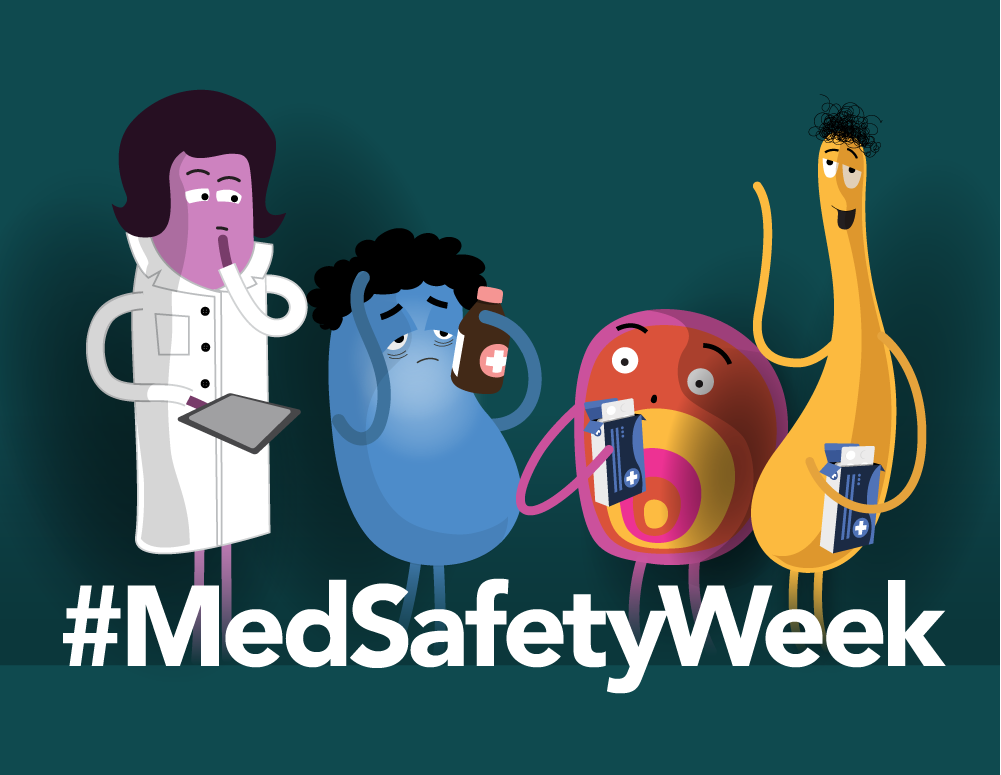
What is #MedSafetyWeek and MHRA Yellow Card scheme?
Peer reviewed by Dr Krishna Vakharia, MRCGPLast updated by Victoria RawLast updated 20 Oct 2024
Meets Patient’s editorial guidelines
- DownloadDownload
- Share
- Language
- Discussion
If you had a bad reaction to a medicine or medical device, or suspected it was unsafe in any way, would you know how to report it? For this #MedSafetyWeek we find out about the MHRA Yellow Card scheme - a quick and simple way of reporting suspected problems with medicine in the UK. A small action from you can keep our medicines reliable, and prevent others from future harm.
In this article:
Continue reading below
What is Med Safety Week?
#MedSafetyWeek is a campaign to make our medicines and healthcare products as safe as possible. By encouraging us to report suspected side effects and other issues, we can help identify and prevent potential problems. Reporting these incidents contributes to improving the overall safety of healthcare products for everyone.
This isn't just a job for scientists and doctors - anyone can make a difference by speaking up if there's a possible issue.
In the UK, medicines and other healthcare products meet very high safety standards. The Medicines & Healthcare products Regulatory Agency (MHRA) plays an important role in this, keeping watch over medicines and devices, investigating problems, and taking action to protect the public from harm.
To do this, the MHRA needs to hear when you have any unexpected side effects, a medical device incident, or believe a product isn't working properly. This is the purpose of the MHRA Yellow Card scheme.
What is the MHRA Yellow Card scheme?
Perhaps your child's inhaler isn't working, you have a bad reaction to a vaccination, or you suspect you've been sold a fake medicine. The MHRA Yellow Card Scheme is a simple report you can fill out online or through the Yellow Card scheme app on Apple or Google Play.
It's easy to fill out - with search bars and multiple-choice answers - and is sent directly to the experts that can investigate the problem.
This is a reporting tool and not a health service. If you are worried about your health, contact your doctor, call the NHS non-urgent helpline number 111, or call call 999 for an ambulance in the UK.
Continue reading below
How do I use the MHRA Yellow Card scheme?
You can visit the MHRA Yellow Card scheme website or download the app. To start your Yellow Card report:
Go to the Yellow Card website.
Enter the name of your medicine in the search bar. Medicines are listed by the name of their active ingredient - not by the brand name. To find the name of the active ingredient, look at the patient information leaflet (PIL) that came with the medicine or device, or ask your doctor or pharmacist.
If you can't find the active ingredient name, you can select this option from the search bar dropdown menu and start your report.
Case study: new side effect found for Gaviscon Infant
Your reports make a real difference. When a three-month-old baby boy developed severe constipation while taking Gaviscon Infant, this is what happened when his mother reported it.
MHRA experts investigated the report and found six other reports of constipation with Gaviscon Infant in children under nine months.
They found that the product information and precautions had been accurate for children over one years of age, and not for younger babies.
Regulatory action was taken with the pharmaceutical company to update product warnings that severe constipation can occur in those under one years of age, so that both doctors and parents can make safe decisions based on this information.
Remember to take your medicine as directed. The right dose, at the right time, and in the right way can make a big difference in preventing side effects.
Always read the PIL or instructions that come with any medicine or medical device. This will provide important details about potential side effects, risks, and how to use the product correctly.
Here are five questions you – as patient, parent, or carer – can ask your healthcare provider to help you make informed decisions and raise awareness of preventing side effects:
What is this medicine for?
When and how should I take it?
How should I store it?
Can it interact with my other medicines, herbal products or food?
What are the potential side effects?
If you have or suspect a side effect, it’s important to report it to your healthcare provider. You can also report side effects yourself - or on behalf of someone you’re caring for - using the Yellow Card scheme. Every report counts, and helps the MHRA monitor the safety of medicines and prevent future harm to others.
Continue reading below
Article history
The information on this page is peer reviewed by qualified clinicians.
Next review due: 20 Oct 2027
20 Oct 2024 | Latest version
2 Nov 2023 | Originally published
Authored by:
Amberley Davis

Ask, share, connect.
Browse discussions, ask questions, and share experiences across hundreds of health topics.

Feeling unwell?
Assess your symptoms online for free
Sign up to the Patient newsletter
Your weekly dose of clear, trustworthy health advice - written to help you feel informed, confident and in control.
By subscribing you accept our Privacy Policy. You can unsubscribe at any time. We never sell your data.